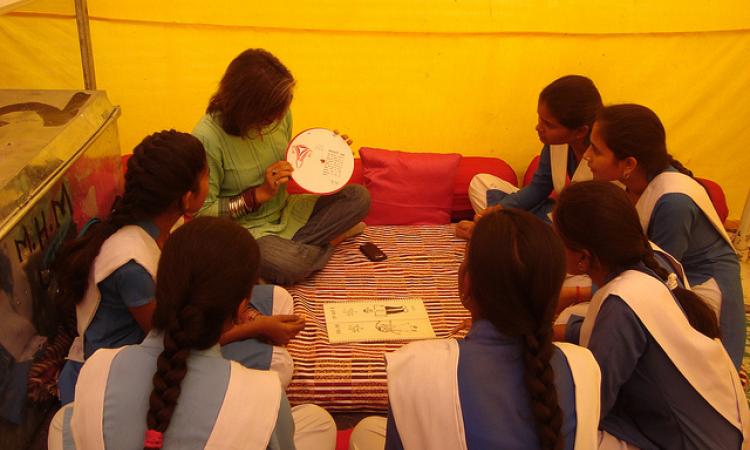
India’s communal fabric is one characterized by immense diversity of practices and belief systems. Local history, environment and culture sculp the way people behave, both as individuals as well as a community as a whole.
Urmila heads ‘Breaking the Silence’, a global campaign on menstrual hygiene management. Interacting with women across regions and age brackets is part of what she does. Though most of her work is spread out across the country, she felt it was pertinent for her to know her roots better to make the journey worthwhile. So, she set out on a journey back to Manipur to understand native traditions, the women-folk and the way they perceive their bodies.
Within a few days of landing, a couple of aspects of Manpuri community life begged for attention. One, the cohesiveness with which people worked and, two, the openness with which they approached new ideas. This inherent ingenuity and ownership held the promise of making Urmila’s job of introducing concepts relating to menstruation and hygiene a whole lot easier.
With the agenda chalked out and volunteers were chosen, the first stop was Ibemcha Girl’s High School in Imphal. The resourcefulness of the locals was best demonstrated by the manner in which they got girls and women together for the first orientation session.
While getting the ladies together might seem difficult, it is nothing compared to inducing them to talk about menses and their experiences in public. But Imphal broke the streak and the women wasted no time. Discussions ranged from individual menstrual experiences and anomalies to spacing of children and medical termination of pregnancy.
While younger girls used sanitary napkins, older women stuck to cloth pads. Condom usage was not preferred, and as a result abortion rates were high. Women rarely visited the doctor to address their concerns.
The day long interaction made it evident that women had many unanswered questions relating to their bodies and the way it functioned, but did not shy away from talking about it. It is such an openness to dialogue that begets genuine understanding and change, wherever necessary. Manipuri women were certainly a step closer to accept and make more informed choices given their circumstances. Here’s hoping these women have a chance at a more hygienic and healthy future.
To know more about Urmila's journey, read the detailed article here.
/articles/menses-monologues-dignity-awareness-and-acceptance